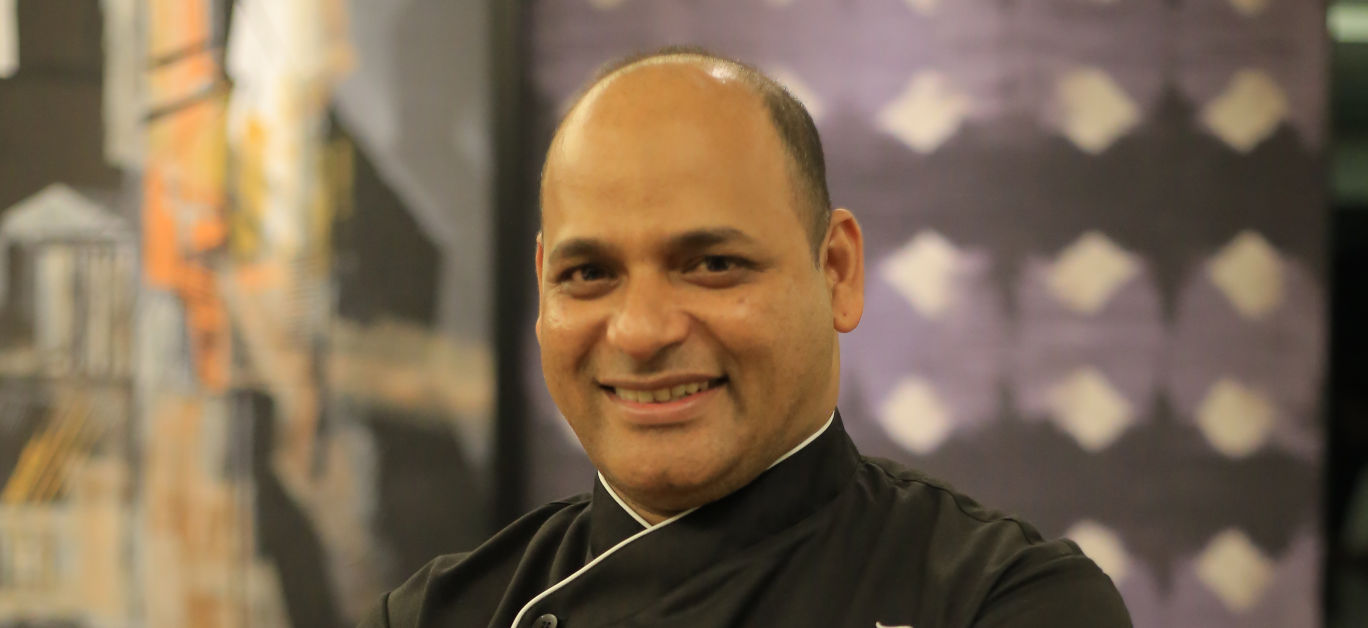Chef Paul Kinny, culinary director at The St. Regis Mumbai in India, brings with him over 25 years of rich culinary experience. An industry veteran, chef Kinny’s career commenced at the legendary Zodiac Grill at The Taj Mahal Palace under the able tutelage of celebrated chef Hemant Oberoi.
His assignments over the next two decades included launching celebrated cricketer, Sachin Tendulkar’s fine dining venue, helming the creative and whimsical venues by Impressario Entertainment, leading the culinary team at international hospitality organisations like IHG and, most recently, with Phoenix Mills Ltd, introducing and managing diverse brands at varied locations. Chef Kinny is, today, a lauded and well-respected force in the Indian hospitality world.
His passion for this profession started with his love for food and his need to explore led him to pursue a Diploma in Hotel Administration and Food Technology from the famed Sophia’s Polytechnic in Mumbai. He has received industry recognition as the Most Admired Chef in 2013 by Star Awards and nominated as one of the 50 top chefs in India by Hotelier Magazine.
At The St. Regis Mumbai, chef Kinny steers the hotel’s award-winning vibrant and distinctive food and beverage venues, with the dynamic culinary teams of the hotel. A little known fact about the soft-spoken chef Kinny is his love for percussion, he enjoys playing the South African Djembe during his down-time. Creative by nature, styling food is his passion as he curates each dish flawlessly. When not in the culinary hallways, chef Kinny spends time with his wife and daughter.
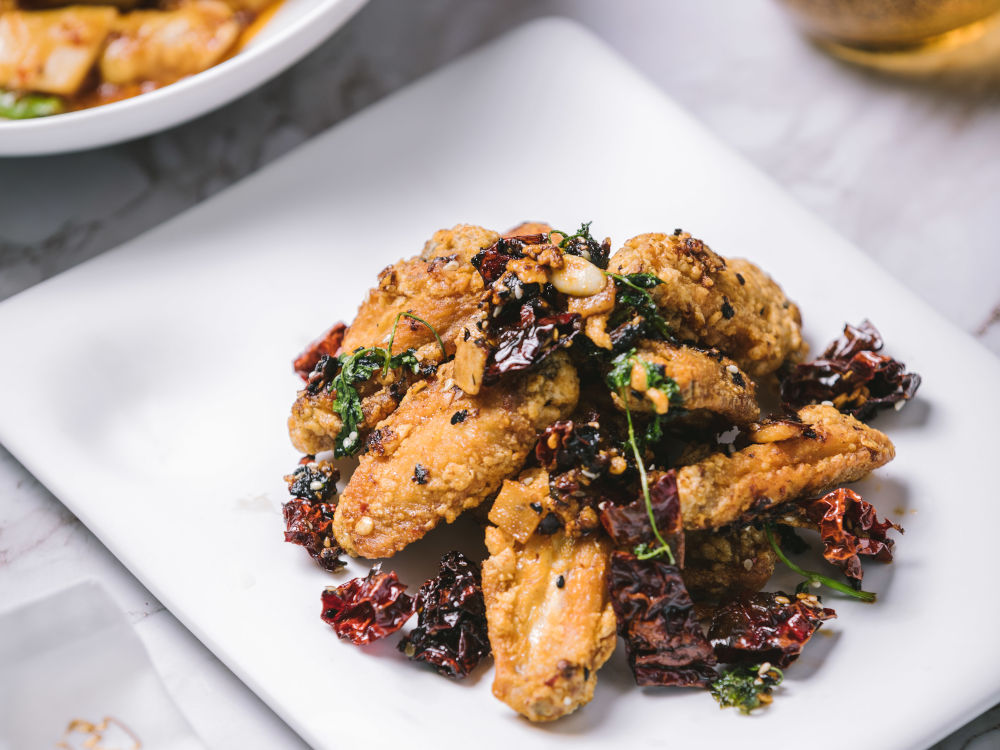
You’ve been in the industry for quite some time. Would you have done anything differently when first starting out?
I have been in the industry close to three decades and the first ten years were spent at the Zodiac Grill which was a European fine dining restaurant. I grew from being a trainee to handling the same prestigious kitchen in a decade. When I look back I probably should have also tried my hand at learning a second cuisine speciality.
You’ve cooked in some really intimidating kitchens. Was there anything you did to build your confidence and ensure you always maintained the drive?
‘Teamwork is what makes a team work’ so I have always ensured that I hire the right team and train them in a way so that they understand your language of food which makes it easier for you to be more creative and productive. It is also important to be aware of what the current trends are but also create your own trends as you go along. Consistency is the key and it goes a long way in creating guest bespoke experiences. Most importantly you should not stop learning plus you should be open to learning from everyone.
Hiring and retaining talent is one of the biggest challenges in any industry, but most especially in hospitality. How do you speak to your staff about career growth and progression?
Hiring is an ongoing process in hospitality and it will always be so because of the high attrition rate. There will always be about 30% of the key talents who are interested in making a career, our job is to take care of them and train them for key functions. If you have a connect with your team and work together on their aspirations it will help the chef as well as the organization.
It is also important that we keep challenging the team to deliver and set the bar high, this is a great motivation and also a path to career progression and growth. Small things like appreciations, team bonding exercises, giving them direction and a free hand to create are factors which have worked well in a hotel where you handle large teams.
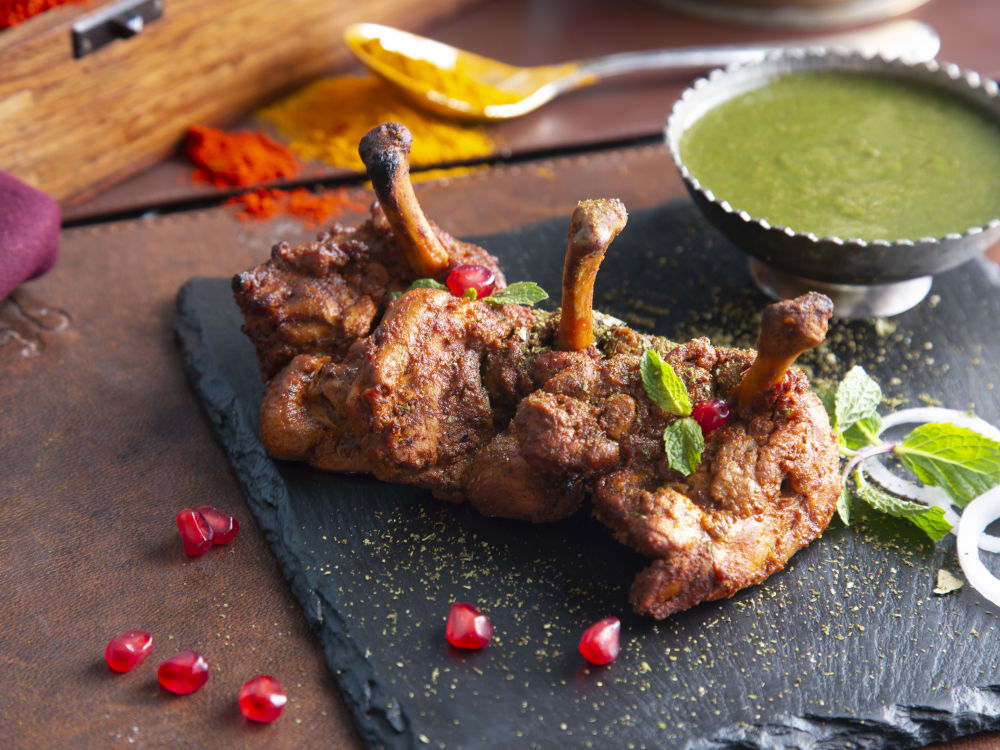
What is your favourite dish to cook at home?
When I get a chance to cook at home it is always Asian cuisine as my daughter loves Asian food, recently I dished up Khow Suey at home.
What’s your favourite takeaway or comfort food? Which is your favourite place to dine at?
My idea of comfort food is a well prepared mac and cheese or a lamb Biryani. At the hotel my favorite place to eat Indian food is The Sahib Room & Kipling Bar and Yuuka for enjoying sushis.
What exactly is vegan cooking and how do you go about it?
Vegan cooking is a type of a vegetarian diet which does not include meats, eggs, dairy products and other animal derived products. It includes all grains, beans, legumes, vegetables, fruits and the various combinations from all of these. It’s not as complicated as it sounds and there are enough replacements available.
Vegan cooking/ vegan restaurants; how easy/difficult it is; what are your previous experiences with it. What is the secret of a good vegan kitchen? What about the suppliers, are there enough in India currently and easily accessible?
I had a chance to be a part of a clean eating restaurant two years back and it was a great learning experience. I literally had to unlearn a lot of the commercial cooking experience I had and then learn the newer nuances of cooking vegan and other healthier diet food. We actually made a vegan mayo which was made with miso and tofu and of course there were the nut cheeses and ‘Mylk’ which were used to replace regular milk and cheese.
My favourite vegan recipe would be that of a ‘tender coconut phad thai’ where the rice noodle is replaced by tender coconut strips and the rest remains the same. The secret of a good vegan kitchen should be able to cook the comfort food which our guests relate to in a vegan way as close as possible. Now there are more than enough vendors who supply ingredients meant for a vegan kitchen which include vegan cheese and ice cream too!
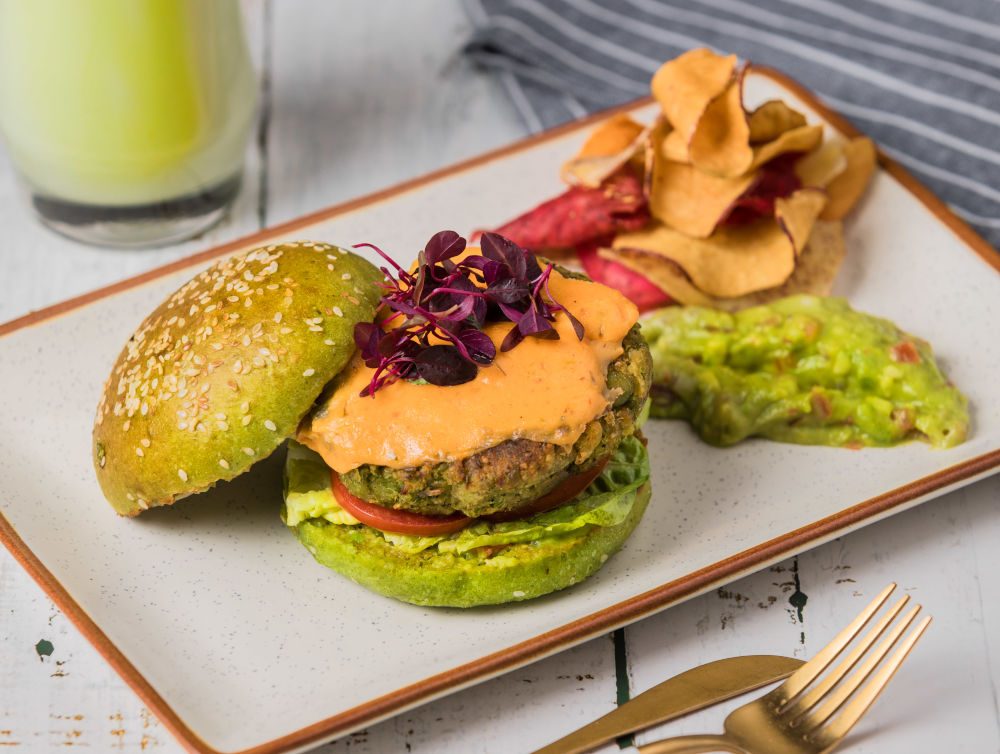
Have you ever worked with meat substitutes? If yes, what are the pro and cons.
The main ingredients that serve as meat substitutes are tofu, tempeh and certain grain and cereal proteins. I have had a few trials with mock duck and vegan sausages but it did not work for me. Most of the mock meats are either heavily processed food which takes away from the basic ingredient and compromises with the taste and texture.
Pros: Straight out of a packet needs only marinating. Provides more options available for vegan guests on your menu.
Cons: Heavily processed food items. Doesn’t taste close to the meat its trying to be a substitute of. I would rather have healthy and nutritious vegan food than go for the meat substitutes. There are enough natural substitutes available eg portobellos and other types of mushrooms which have an earthy flavour, profile and texture.
How can restaurants/ hotels/ chefs communicate the approach of innovative sustainable plant-based food/ food chains to others?
The approach to communicate sustainable plant based food is a process as well as an evolution and the teams must be committed to make it work. This is lengthy and cumbersome but not impossible. It also gives the chefs an opportunity to be innovative in a unique way and add to their repertoire and provides business to local vendors for supplies. You can always start small and simple and make seasonal menus using local seasonal produce.
Adding vegetarian or vegan menus to the menu: What is the trend/experience with this?
This is a trend which is here to stay for a long time and the need of the hour. Indian hospitality has always been a vegetarian focused market so it is not that difficult for us to adapt. We have always had Thai curries without shrimp paste and nam pla served to our guests. From Asian to European and Peruvian, the world is our playground for culinary inspiration. There are enough seasonal and local vegetables, fruits, beans and whole grains which can be showcased creatively on our menus.
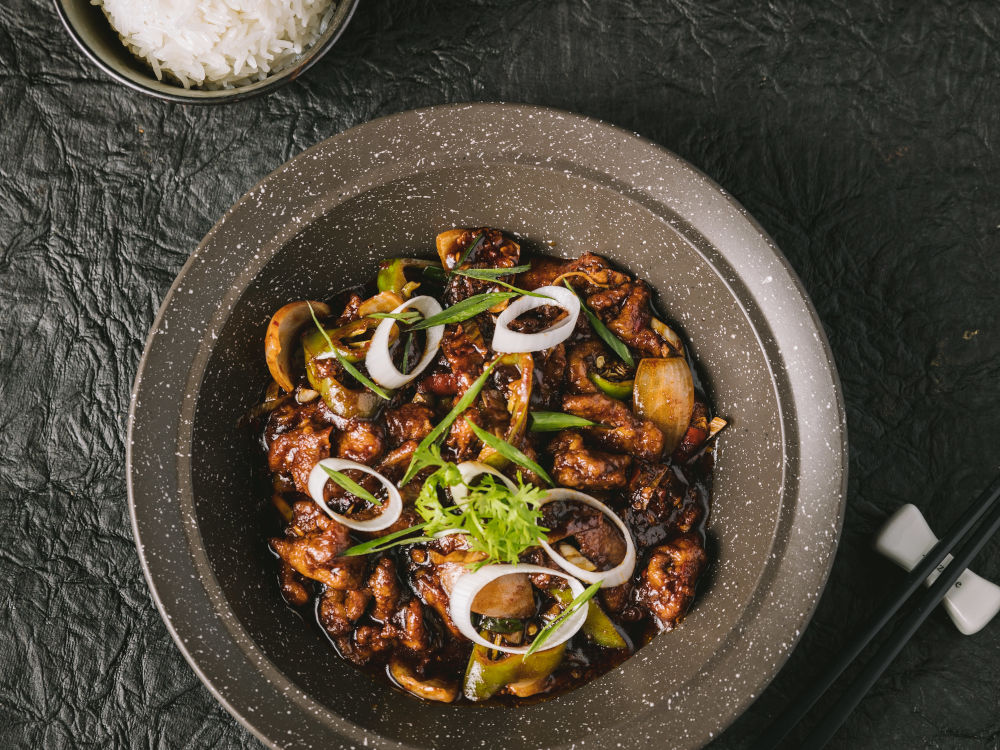
What are the challenges for chefs/restaurants with an increasing demand for vegetarian or vegan menus?
I see this as an opportunity to be creative. In India we have always had a focus on vegetarian food and our chefs in the hotel have enough creativity to apply vegetarianism and veganism to other cuisines and yet maintain the authenticity. This trend also has enough capability to create loyalty and increase footfalls in our restaurants.
Tell us about your two most popular preparations in line with this concept (sustainability). How does it help local farmers/suppliers?
In our hotel we have healthy menus with plenty of vegan options and gluten free options listed down. The dishes on the menu are not only local with international flavors but also nutritious and healthy. Two dishes in line with this concept are roasted beetroot hummus with sweet potato chips and tomato and lentil shorba.
Please tell us more about the concept of zero wastage and how you have contributed to it so far. Does this put pressure on your budgets?
The hotel has a minimum wastage policy in all our outlets and this is done by proper forecasting and right amount of production. Every kitchen has a set par stock level in line with the business and the budgets. This does challenge the budgets but is also an opportunity to find newer ways and means to save costs. There is also a plan to activate an AI based wastage recording system in place to make the operations more profitable and effective.
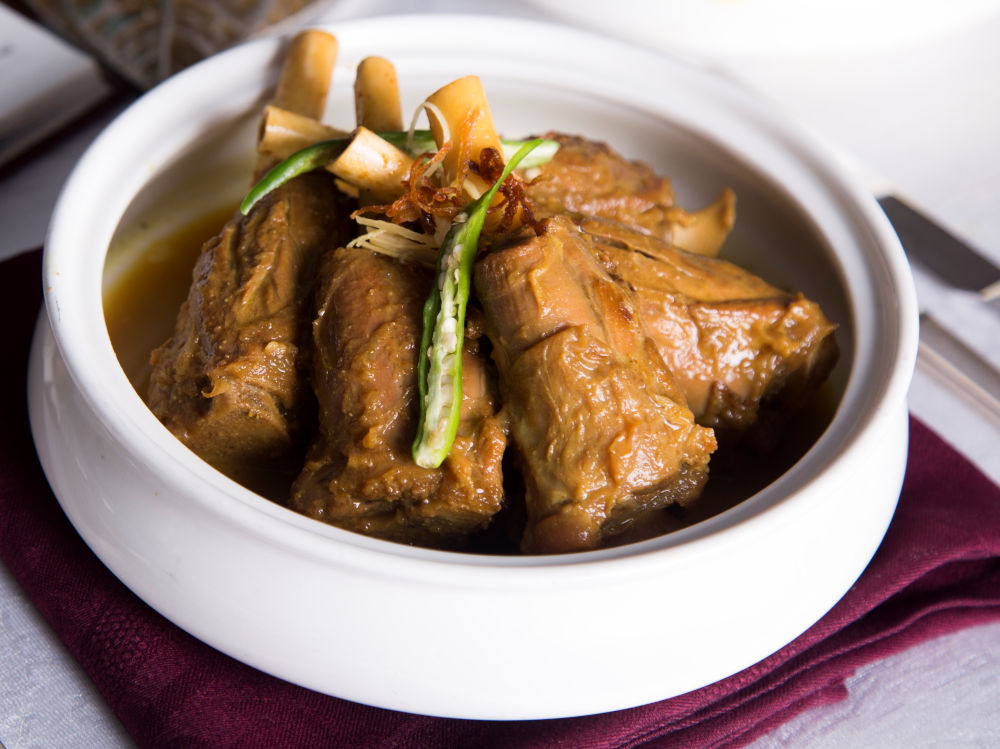
Tell us about the concept of ‘farm to fork’ and how it helps to promote the idea of sustainability and good health. How do you think we can create awareness amongst more chefs and restaurants and hotels so that they contribute to this initiative?
The farm to fork concept has been here for a while and gaining in popularity. Food is generally picked when it is freshest and has a burst of natural flavours and vitamins. Due to this the chefs don’t need to have to bury the produce in overpowering and complex sauces but let the produce and flavour shine on the plate. A small step towards this will be to encourage chefs to be a part of the farmers markets in their local areas so they get a firsthand experience of the produce. This would also encourage the chefs to interact with the farmers and exchange ideas about the seasonal produce and quantity. The organisation can also have popup menus/ dinners which are focused towards the farm to fork concept and build awareness around it.
For a long time India had more vegetarians as compared to those who ate non vegetarian food, do you think we are going back to the previous times where more people are now advocating vegetarianism? What is the reason for this change and how will it impact the food that we eat ?
Yes, India has always had a high number of vegetarian guests mostly because of religious reasons. Today, the trend is changing and we see a large number of guests who are vegetarian by choice. There is also a change in the way people look at their own well-being and health which has seen a jump in preference for vegetarian and vegan choices.
Indian food always had a lot of vegetarian options in all their regional cuisine and hence we see plenty of regional and micro regional Indian food becoming mainstream. This is always a good opportunity for chefs to tie up with home chefs with mastery in cuisines like Kayasth Brahmin, Saraswath Brahmin and showcase them to the local as well as international guests.












